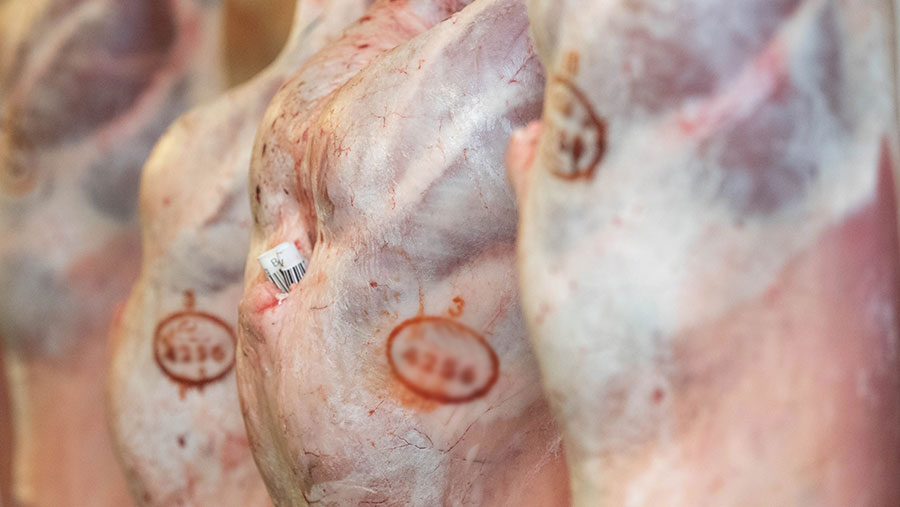Major supply chain disruption as NI vets strike takes effect
 © Tim Scrivener
© Tim Scrivener Ongoing vet strikes in Northern Ireland are impacting the food supply chain, with some abattoirs having to cease operations in the short term.
As well as slaughter operations being stopped at some sites, the significant lack of vets means live animal exports have been suspended for the week, and checks on food imports and exports are being disrupted.
Protests and picket lines are in place at a number of locations throughout Northern Ireland, including at Belfast port.
The poultry sector has been prioritised for the remaining vets; however, all livestock sectors are being impacted and some businesses have already forecast disruption to beef supplies from NI to England.
See also: Risk of abattoir closures due to NI farm vets strike action
Ulster Farmers’ Union deputy president John McLenaghan said the strike action by the Veterinary Service Animal Health Group (VSAHG) is very worrying for farmers.
Mr McLenaghan said: “We understand the argument around equal pay for service providers, but our members will be the ones left to endure the substantial cost of this action.
“At this stage, we don’t fully know what the impact will be, and the uncertainty makes this situation more difficult to manage as our farmers are not able to plan.
“This is the worst possible time for strikes. Many farmers sell cattle ahead of the winter months, and processors are operating at full capacity in preparation for Christmas.”
Some meat processors asked Daera before the strikes began if they would be allowed to pay for private vets to fill in for the striking official veterinarians (OVs).
However, this proposal was reportedly rejected the government department, with legislation not allowing slaughterings to take place unless an OV is present.
Mitigation
Farmers Weekly contacted Daera for comment on the vet strikes and how it is working to mitigate the impact.
A Daera spokesman said: “As soon as the likelihood of this strike action became apparent, the department commenced its business continuity planning and engaged extensively with stakeholders on the potential impacts.
“It also advised operators of businesses that rely on Daera services to consider activating their own business continuity/emergency plans.
“The Northern Ireland Public Service Alliance has granted derogations to ensure that poultry slaughter continues and for the provision of cover for the 24-hour epizootic on-call rota.
“Both have been granted on the basis that they will only take effect if required. Other requests for derogations were not granted.
“Daera has been able to provide some level of service to the intensive livestock sector and is monitoring activities across portal and field operations and, where possible, is taking action to mitigate the worst impacts on service delivery.”
The Windsor Framework (facilitating trade between GB and NI) has allowed some goods to continue to pass between Northern Ireland and Great Britain without checks.
However “red lane” foods that are destined to pass through NI to the Republic of Ireland are still facing disruption.
Long-term disruption
Impacts from the strikes are likely to begin to be noticeable at retail level as early as next week, with potential shortages on shelves for some products.
The impact from the strikes could take months for the sector to recover from, according to the British Meat Processors Association (BMPA).
The BMPA is also concerned that backlogs of pigs could build on farms and that finished livestock will grow too large and become out of retailers’ specifications.
The availability of pricing information for cattle and sheep from the Livestock and Meat Commission for Northern Ireland has also been impacted by the strikes.
Daera has published advice on its website for all sectors affected by the strike action.
